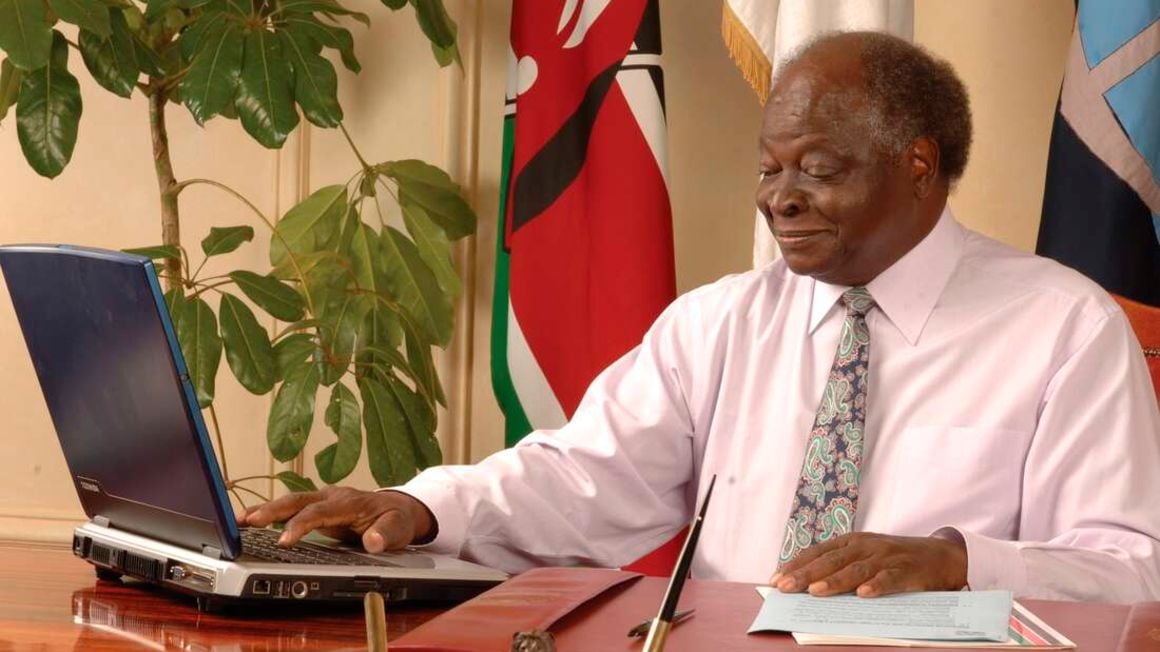
The late president Mwai Kibaki. PHOTO | PSCU
As Kenya says final goodbye Emilio Mwai Kibaki, this week, the nation is united in grief over the
loss of an extraordinary man, a father, a grandfather, a brother, an uncle, a cousin, and a great leader.President Kibaki’s death is a profound loss to every Kenyan. Although no words can truly express our collective grief and loss, his family must know that they are constantly in our thoughts and prayers. We pray that God would comfort and sustain them through this challenging time and in the future.
My first close encounter with this iconic person was in 2000 at the Thika Road Shell Petrol Station, where his driver had stopped to fill up his Range Rover. He sat on the passenger's side, dressed in his then trademark beige blazer.
I got out of my car and walked right up to his car. He immediately extended his right hand to meet me with a pleasant smile. I told him that I voted for him in 1997, and I believed he would be Kenya's President the next time around.
"Tutaona (we'll see)”, he said enthusiastically in Kiswahili. And indeed in 2002, he became the third president of Kenya.
I had no idea that I would have the privilege of serving this great man one day. On Monday, December 5, 2005, my name was among those Mr Kibaki had appointed to run his government as the Permanent Secretary (PS), Ministry of Information and Communication.
I learned from Mr Kibaki's leadership his desire to turn Kenya into an economic fortune. And any time we would meet him, he was always willing to listen to ideas that would help grow the country.
The Vision 2030 Economic Blueprint sealed many of his ideas to transform Kenya into a newly industrialised country. And I am glad to have been part of the team. Unknown to the public was his style of delegating authority. He gave us the freedom to make decisions.
At times his authority could be felt in critical decisions. That is what transformed especially the ICT sector in Kenya into what it is today. From M-Pesa to infrastructure and the Kenya Open Data initiatives, none of these developments would have happened without the direct intervention of the President.
Mr Kibaki will be remembered as a leader who saw the adoption of a national ICT policy for Kenya in January 2006 after many attempts had failed in the preceding years.
The policy, based on four guiding principles: infrastructure development, human resource development, stakeholder participation and appropriate policy and regulatory framework, has made the country a leading innovation hub.
To show how serious Mr Kibaki was regarding ICTs, on February 26, 2006, barely two months after myself and minister Mutahi Kagwe had been in office, he joined the entire ICT sector at Safari Park Hotel to discuss how we should take the country forward.
Ordinarily, during such events, the President will open then he is escorted out of the venue for other deliberations to proceed. But we were wrong. The President announced that he wanted to stay to understand how jobs would be created in it.
At the end of the conference where he fully participated, the President was fully convinced that the ministry could become a critical cog in economic development and a driver of employment creation.
As a result, ICT was entrenched in his second economic blueprint, the Vision 2030, on which I was a member of the apex body, the National Economic and Social Council (NESC).
In line with policy, development of infrastructure – the undersea cable – connecting Mombasa to Fujairah in UAE started. He dispatched Mr Kagwe and I to the UAE to seek partnerships that succeeded in building the TEAMs Cable even though there was no public-private partnership legal framework.
Also, when the youth from innovation hubs asked for public data to develop new apps, President Kibaki approved the development of the Kenya Open Data Initiative (KODI) against the advice of the Interior ministry.
His reason was: "If these data are shared with the Bretton Woods institutions, why would our youth not get it also?"



No comments:
Post a Comment